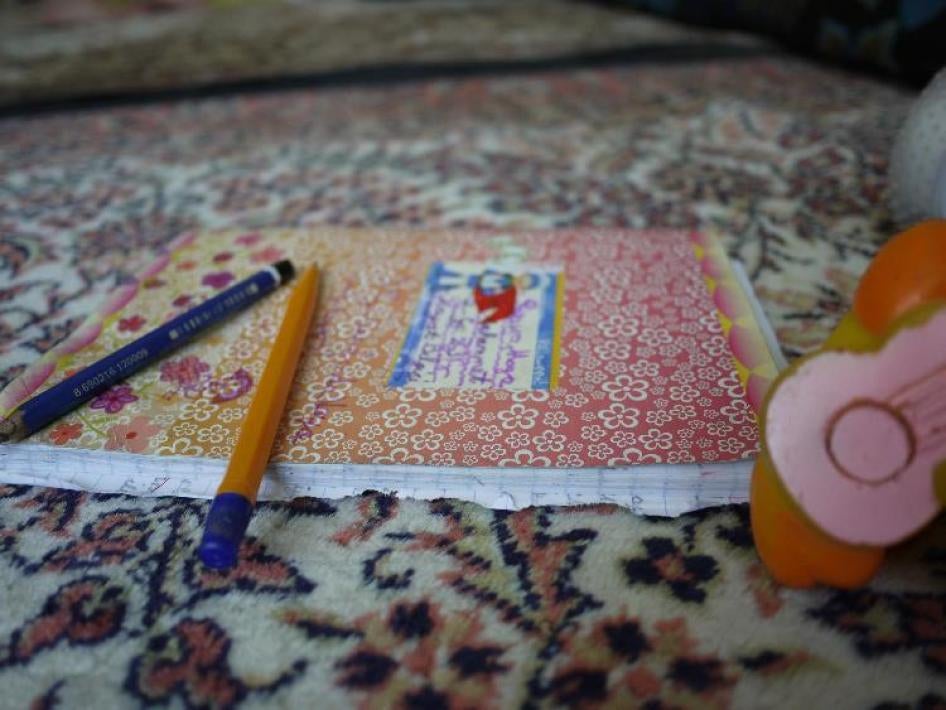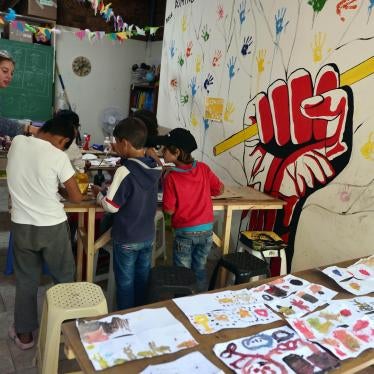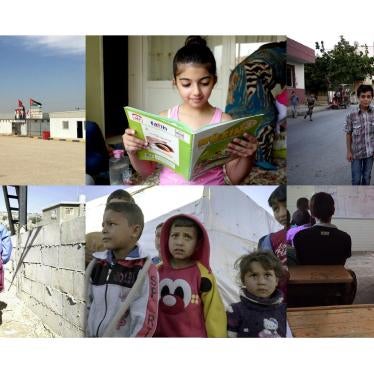More than 40 percent of Syrian refugee children are still not going to school. That’s according to a new UNICEF report, which says that while Turkey has seen a 50 percent increase in school attendance for Syrian refugee children since last June, far too many of them – at least 380,000 – are still not receiving an education.
Why?
Last year Human Rights Watch released a series of reports focusing on the difficulties that many Syrian refugee families face in Jordan, Lebanon, and Turkey when trying to access public education.
Our Turkey report showed how language barriers and economic hardship create enormous obstacles for urban refugee families who wish to send their children to school. The problem is not Syrian refugee children being actively blocked from Turkey’s public schools. Rather, it’s the ongoing difficulties their parents face in being able to legally work and their subsequent struggle to afford to send their children to school or, in other cases, lose the income their children earn by working in the gray economy.
In January 2016, Turkey issued a new regulation allowing registered Syrian refugees to apply for work permits to address this issue. But so far this seems to have made little impact. By the end of 2016, only 13,298 permits had been issued to Syrians – just 0.5 per cent of the 2.8 million Syrians registered as refugees in Turkey. Syrians who want to register must wait six months after they applied for temporary protection to seek a work permit and, even then, are eligible to work only in the area where they applied for protection and where they have an employer willing to sponsor them, among other restrictions.
For its part, UNICEF has trained 20,000 Syrian teachers, renovated 400 schools, and asked for Syrian children to be included in a Turkish program that gives cash allowances to families who need financial help to send and keep their children in school. These are important steps, but the best way to ensure that all Syrian children in Turkey go to school, is to help their families to lawfully enter the work force so they can earn an income.
A child we interviewed in 2015 said, “when I picture my future, I see nothing.” With international support, Turkey needs to change that picture.









